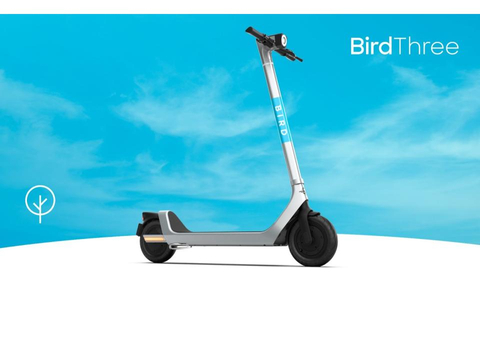Bird Publishes Independent Vehicle Life Cycle Analysis, Setting a New Standard for Emissions Reporting Quality
Bird Global, Inc. (NYSE:BRDS) has announced a groundbreaking milestone in micromobility by becoming the first operator to achieve an ISO-critically reviewed Life Cycle Analysis (LCA) for its Bird Three micro-EV. The report shows that the Bird Three is among the lowest-emission vehicles in Europe, boasting a five-year lifespan. Passengers using Bird Three scooters generate significantly lower greenhouse gas emissions compared to traditional transport methods, with 21% less than the metro and 87% less than ride-hailing services. The LCA aims to set a new standard in emissions reporting within the industry.
- Achieved ISO-critically reviewed LCA for Bird Three micro-EV.
- Bird Three boasts a lifespan of up to five years post-refurbishment.
- Results indicate Bird Three contributes 21% less greenhouse gas emissions compared to metro transport, 77% less than gas cars, and 87% less than ride-hail services.
- None.
Report launched in

Bird Publishes Independent Vehicle Life Cycle Analysis, Setting a New Standard for Emissions Reporting Quality (Photo: Business Wire)
Bird’s cradle-to-grave LCA report confirms that the Bird Three, the company’s latest and most sustainable vehicle, has a lifespan of up to five years after refurbishment and is among the most climate-friendly vehicles on the road in European cities – including other shared modes and public transport. Travelers in European cities who take a Bird Three account for on average approximately
The LCA emissions model was reviewed and documented by
Manufacturing and assembly of Bird’s electric scooters is included within the LCA along with additional manufacturing of components for replacements, transportation of vehicles to target European cities, charging and fleet management and scooters’ disposal at end-of-life. Conservatively, the LCA takes no credit for Bird’s renewable energy credits, carbon offsets, or robust program of end-of-life recycling.
The hardware and software powering Bird Three have been expertly crafted to create the most eco-conscious shared escooter available with best-in-class durability. Features include Aerospace-grade aluminum and the Bird Three’s proprietary battery system which travels farther on fewer charges, with industry leading IP68-rated battery protection to keep it safe from dust and water. The vehicle also boasts independently tested and verified impact resistance; pneumatic tyres and smart acceleration technology to reduce wear and tear.
“Bird’s LCA sets a new industry standard for emissions reporting quality, enabling reliable comparisons across European modes and vehicles, and helping Bird to identify and reduce emissions wherever possible,”
“By following expert recommendations and best-practice methods for their LCA, Bird is demonstrating leadership in their commitment to rigorous, transparent greenhouse gas emissions reporting, which will enable city governments to make more informed decisions and – if widely adopted – enable emissions reductions across the micromobility sector,”
About Bird
Bird is an electric vehicle company dedicated to bringing affordable, environmentally-friendly transportation solutions such as e-scooters and e-bikes to communities across the world. Founded in 2017 by transportation pioneer
1 Emission rates for Bird scooters:
2 ISO is the
View source version on businesswire.com: https://www.businesswire.com/news/home/20221005005544/en/
Investor
investor@bird.co
Media
press@bird.co
Source:
FAQ
What is the significance of Bird Global's recent LCA report?
How does the Bird Three micro-EV compare to other transport options in terms of emissions?
What company is associated with the ticker symbol BRDS?







